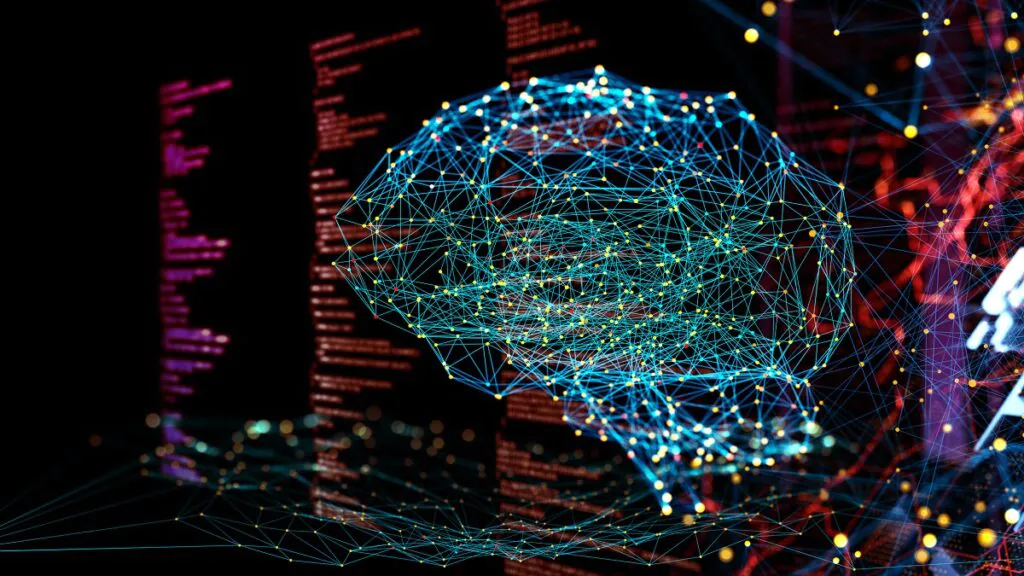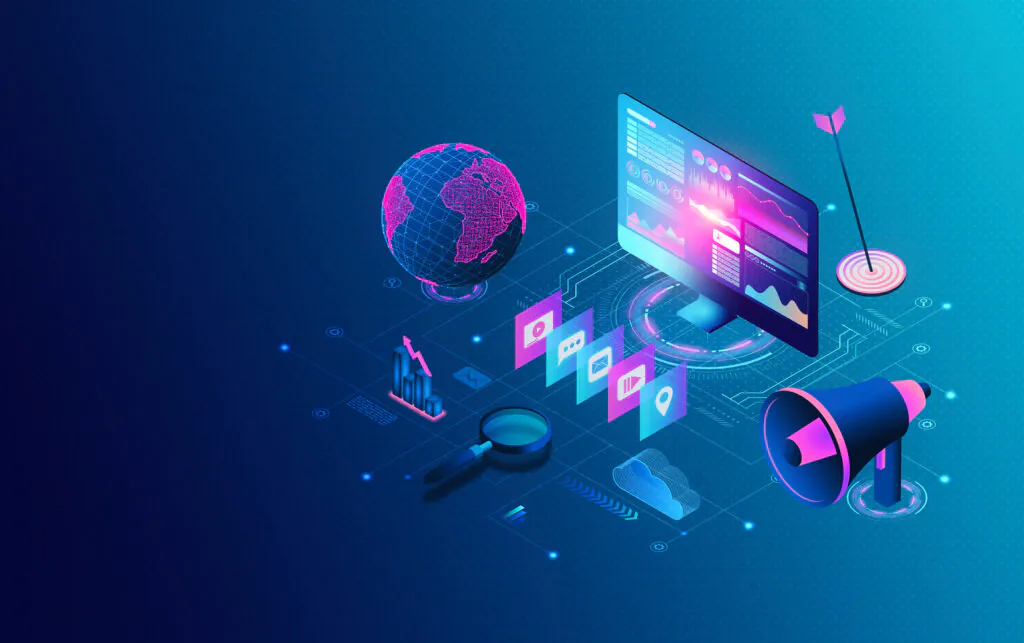Written By: Sudeshna Ghosh
Table of Contents
Generative AI Decoding: An Introduction
In our exploration of AI, particularly Generative AI, we dive deep into Machine Learning, AI tools, generative AI algorithms, Natural Language Processing (NLP), GenAI, Neural Networks, and Deep Learning. Large Language Models (LLMs) like ChatGPT showcase the fusion of NLP and AI, driving Digital Innovation across industries. With the rise of Generative Adversarial Networks (GANs), Digital art creation and text-based interactions have surged, revolutionizing IoT applications.
Technology leaders such as MicroStrategy are embracing Generative AI and leveraging Big Data for insights. Yet, Security remains critical, safeguarding AI systems and Training Data from breaches. As AI adopters, it’s crucial to navigate the complexities of artificial intelligence algorithms, ensuring ethical practices guide our utilization of synthesized knowledge.
Book a demo to experience the meaningful insights we derive from data through our generative ai tools and platform capabilities. Schedule a demo today!
Request a Free DemoDecoding Generative AI’s Popularity: How is GenAI Reshaping the Industry Landscape?

- Increased per capita throughput/output by automation of basic tasks helping focus on more important tasks
Generative AI, a subset of artificial intelligence algorithms, such as GANs (Generative Adversarial Networks), is instigating a transformative shift in the industry landscape, notably enhancing per capita throughput. Through the synthesis of data and the utilization of models powered by machine learning and neural networks, professionals can automate fundamental tasks. This automation of Synthesized, Genai allows them to redirect their efforts toward more crucial endeavors, thus optimizing efficiency and productivity across the board.
Technology leaders, including AI adopters like MicroStrategy, are leveraging generative AI tools such as ChatGPT, which belongs to the family of Large Language Models (LLMs). These AI tools facilitate digital innovation by enabling text-based interactions and aiding in digital art creation through natural language processing (NLP) and deep learning techniques.
Furthermore, the strategic allocation of resources towards the development and utilization of generative AI algorithms elevates security measures. It unlocks a new realm of possibilities for innovation and growth, particularly in domains reliant on Big Data, IoT, and digital innovation. This includes securing training data for AI models and enhancing the robustness of AI systems against potential threats.
- Wider customization and creative landscape provided a headstart by GenAI-supported tools
Simultaneously, Generative AI is expanding the horizons of customization and creativity. Empowered by advanced tools, it provides a distinctive headstart for industry practitioners, affording them a broader canvas to explore creative landscapes. This not only fosters a culture of innovation but also accelerates the pace of ideation and execution, positioning the industry at the forefront of transformative advancements. In essence, Generative AI is not just a technological augmentation; it is a catalyst for a more efficient, creative, and forward-thinking industry landscape.
Generative AI, a subset of AI driven by artificial intelligence algorithms and generative AI algorithms, leverages large language models (LLMs), Synthesized Machine learning, Genai and neural networks to synthesize innovative outputs. By analyzing vast amounts of data and training data, Generative AI creates content autonomously, spanning various domains including digital art creation and natural language processing (NLP). This innovation is particularly significant for AI adopters and technology leaders, who recognize the potential of Generative AI to revolutionize digital innovation and text-based interactions.
Furthermore, Generative AI plays a crucial role in enhancing security measures by identifying vulnerabilities and mitigating risks associated with Big Data and the Internet of Things (IoT). Through deep learning techniques such as GANs (Generative Adversarial Networks), Generative AI aids in creating robust AI models capable of safeguarding sensitive information.
In collaboration with platforms like ChatGPT and companies like MicroStrategy, Generative AI is poised to reshape industries, driving digital innovation and empowering businesses to harness the full potential of AI tools. As Generative AI continues to evolve, it promises to revolutionize various sectors, ultimately redefining the boundaries of technology and creativity.
Experience the advantages firsthand by testing a customized complimentary pilot designed to address your specific generative ai requirements. Pilot studies are non-committal in nature.
Request a Free PilotDecoding Generative Artificial Intelligence: Trends 2024
Creative support, reduction of human intervention, and effort
Generative AI is revolutionizing technology and business processes by providing unparalleled support, augmenting human creativity rather than replacing it. Through sophisticated algorithms and deep learning capabilities, it reduces the need for extensive human intervention, streamlining workflows and allowing professionals to focus on strategic decision-making.
Moreover, Generative AI stands as a beacon for efficiency, significantly reducing human effort across various tasks such as Text Generation, Image Generation, Audio Generation, robotics and Video Generation. By automating repetitive and time-consuming processes, it liberates valuable resources, enabling professionals to redirect their efforts toward more complex, high-value tasks. This not only enhances productivity but also ensures a more strategic utilization of human expertise.
However, the widespread adoption of Generative AI in robotics and other sectors raises IP concerns regarding ownership and rights over generated content. To address these challenges, Regulation is necessary to ensure Transparency and Audit of AI-generated outputs, promoting Responsible AI practices and building Trust among stakeholders. Governments play a crucial role in establishing Ethics guidelines and defining Legal parameters for AI usage, with initiatives like the EU AI Data Protection Regulation shaping the landscape of AI governance.
Figures like Rishi Sunak advocate for robust Data protection measures and advocate for Hosted solutions to mitigate risks associated with AI. By embracing Responsible AI practices and adhering to regulatory frameworks, businesses can navigate the complex landscape of AI innovation while safeguarding against potential risks and ensuring compliance with legal and ethical standards.
In essence, the deep exploration of Generative AI reveals its pivotal role in fostering creativity, minimizing human intervention, and optimizing efforts. This technological advancement emerges not as a replacement for human ingenuity but as a powerful ally, reshaping the landscape of creative processes and elevating the overall efficiency of organizations that embrace its potential.
Public opinion regarding AI technologies like Copilot on platforms such as GitHub is crucial for their diffusion and stability within society. With the ability to generate various forms of content, including text, images, audio, videos, and code, these tools can enhance automation and streamline tasks for workers across diverse sectors, as highlighted in McKinsey’s report.
In fields like customer operations, marketing and sales, software engineering, R&D, healthcare, finance, retail, banking, and retail and consumer packaged goods, the integration of Generative AI offers immense potential for innovation and efficiency improvements. By leveraging AI-generated simulations, organizations can optimize processes and better understand TrueProject Insights to drive strategic decisions, T&C’s and enhance GDP growth.
Generative AI Transformations for different industries: Decoding GenAI

- Support bypassing of human effort by automating and making basic decisions in day-to-day processes
Accenture, Nvidia, Expedia, Shopify, and Stripe are all at the forefront of leveraging Generative AI in various facets of their operations. The adoption of Generative AI brings with it a range of pros and cons, including considerations of legal, ethical, political, ecological, social, and economic issues. However, looking towards the future, it’s evident that Generative AI will play a significant role in workforce transformation across industries.
- Serves as a beach between creativity and AI to boost option simulation
Artificial Intelligence (AI) and CAI acts as a bridge, synergizing knowledge work with advanced AI capabilities to enhance productivity growth. By providing a versatile platform for learning new skills, it empowers professionals to generate a diverse range of possibilities, fostering culture of innovation and refining decision-making processes. This is exemplified in initiatives like TrueProject, where AI plays a pivotal role in guiding strategic direction and driving growth through innovative solutions.
As the Vice President of Global Alliances and Partners at Information Builders, I have witnessed firsthand the transformative power of AI in various industries. For instance, at AT&T, AI-driven technologies have revolutionized advisory board capacities, enabling more informed decisions and strategic planning.
However, the widespread adoption of AI also raises important ethical considerations regarding data privacy and copyright issues. The emergence of Deepfakes underscores the need for robust safeguards and regulations to protect individuals and businesses alike. Therefore, it is imperative to develop AI tools with ethical considerations at the forefront, ensuring that they contribute positively to society while mitigating potential risks.
- Continual learning helps improve accuracy over time
Moreover, the continual learning inherent in Generative AI contributes to ongoing improvements in accuracy over time. As the system adapts and refines its algorithms based on real-world data, it ensures a dynamic evolution, maintaining relevancy and precision in various business applications.
In essence, the integration of Generative AI represents a transformative infusion of efficiency, creativity, and adaptability into business operations, positioning organizations at the forefront of innovation in the ever-evolving landscape.
What does the future hold?
Increased machine-to-human interaction reduces the need for human intervention and effort for standard day-to-day activities
The future of Generative AI promises a paradigm shift in machine-human interaction, diminishing the necessity for human or government intervention in routine tasks. As the technology evolves, it foresees a landscape where standard day-to-day activities are seamlessly handled by AI systems, alleviating the burden on human resources and increasing operational efficiency.
Boost personalization possibilities across the products and services landscape
Furthermore, Generative AI is set to revolutionize personalization across products and services. With advanced algorithms and data-driven insights within AI education, businesses can tailor offerings to individual preferences, creating a more personalized and engaging customer experience. This not only enhances customer satisfaction but also cultivates brand loyalty in an increasingly competitive market.
AI governance is essential in ensuring responsible AI deployment within modern app ecosystems. Companies must leverage AI tools and LLMs (large language models) to extract value from their data while respecting ethical considerations and maintaining transparency. Human ingenuity combined with these technologies creates powerful solutions for monitoring social media through social media monitoring tools. Leveraging historical data with AI-driven insights helps in setting and achieving KPIs (Key Performance Indicators). CRM (Customer Relationship Management) systems and CMS (Content Management System) play key roles in managing customer interactions and content creation, respectively.
The steam revolution transformed industries, but the current AI revolution leverages AI tools and LLMs for even more significant advancements. Integrating AI governance within business practices ensures that companies remain accountable and secure when utilizing these transformative technologies. Using tools such as Google Analytics, businesses can track performance and identify areas for improvement. This is further supported by human ingenuity in interpreting data and making informed decisions based on historical data. AI’s role in enhancing CRM and CMS platforms leads to optimized customer experiences and efficient content management.
Get started with your complimentary trial today and delve into our platform without any obligations. Explore our wide range of customized, generative ai analytical solutions built across the analytical maturity levels.
Start your Free TrialStatistics:

- 30-50% reduction in human intervention needs across standard processes
- 3x customizability options to start across customer and geo levels and 20-30% reduced customization costs
- 2x faster decision-making with supported tools
In the culmination of our deep exploration into the workings of Generative AI, it becomes evident that we stand at the threshold of a transformative era. As we decode the intricate mechanisms of this technology, it becomes clear that Generative AI is not merely a tool but a catalyst for unprecedented advancements. Its ability to automate tasks, foster creativity, and continually refine itself heralds a future where operational efficiency and innovation converge seamlessly. The prospect of increased machine-to-human interaction, public discourse, enhanced personalization, and real-time decision-making signifies a paradigm shift in how we navigate the challenges of a dynamic landscape. However, as we embrace these advancements, the call for responsible use and ethical considerations becomes imperative to ensure a future where Generative AI stands as a force for positive change, shaping industries and endeavors with unparalleled efficiency and ingenuity.



